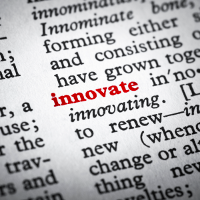 Now entering its tenth iteration (2024-2025), C-IP2’s Thomas Edison Innovation Law and Policy Fellowship is a year-long non-resident fellowship program that brings together a group of scholars to develop research papers on innovation law and policy. The Edison Fellowship is one of the centerpieces of C-IP2’s mission to promote a better academic discussion about intellectual property rights with substantial scholarship produced from rigorous research that examines the moral and economic value of innovation.
Now entering its tenth iteration (2024-2025), C-IP2’s Thomas Edison Innovation Law and Policy Fellowship is a year-long non-resident fellowship program that brings together a group of scholars to develop research papers on innovation law and policy. The Edison Fellowship is one of the centerpieces of C-IP2’s mission to promote a better academic discussion about intellectual property rights with substantial scholarship produced from rigorous research that examines the moral and economic value of innovation.
The Edison Fellowship consists of a series of invitation-only conferences over the course of a year in which Edison Fellows study and discuss a structured curriculum, engage in roundtable discussions with expert senior scholars and industry representatives, and share and collaborate on both their research and early drafts. The Fellowship culminates in the production of substantial academic research papers that are published in law journals or other peer-reviewed academic journals.
Edison Fellowship Classes by Year
Spotlight on Scholarship
Sandra Aistars, Copyright’s Lost Art of Substantial Similarity (September 7, 2023). George Mason Legal Studies Research Paper No. LS 23-14, Vanderbilt Journal of Entertainment & Technology Law, Vol. 26 (Forthcoming 2023)
In this paper from our Thomas Edison Innovation Fellowship, Sandra Aistars of Antonin Scalia Law School comments on a trend among courts hearing visual arts cases to de-emphasize substantial similarity analysis and shift the work of deciding infringement cases almost entirely to the fair use defense.
Yao Zhou, Dynamic Governance of Microbiome Innovation (February 9, 2023)
In this paper from our Thomas Edison Innovation Fellowship, Yao Zhou of Morgridge Institute for Research develops a dynamic model for governing microbiome innovation.
Molly Stech, Co-Authorship Between Photographers and Portrait Subjects (Jan 1, 2022). Vanderbilt Journal of Entertainment & Technology Law, Vol. 25, 2022
In this paper from our Thomas Edison Innovation Fellowship, Molly Stech of STM comments on subjects’ rights in photographs.
Daryl Lim, Judging Equivalents, 36 Santa Clara Computer & High Tech. L.J. 223 (2020) [SSRN]
In this paper from our Thomas Edison Innovation Fellowship, Daryl Lim of John Marshall Law School looks at the doctrine of equivalents, which gives patentees protection beyond the literal words of their claims. Professor Lim surveys the law and literature over the past 150 years and provides empirical data that helps to clarify the doctrine’s nature and contextualize its evolution and future.
Runhua Wang, Decoding Judicial Reasoning in China: A Comparative Empirical Analysis of Guiding Cases, 68 Clev. St. L. Rev. 521 (2020) [SSRN]
In this paper from our Thomas Edison Innovation Fellowship, Runhua Wang of Chicago-Kent College of Law surveys twenty-two guiding cases that act as binding precedent in IP cases in China and compares them with corresponding judicial precedents in the United States. Dr. Wang argues that these guiding cases are not conventional private or public law, and she explains how they take a utilitarian and pragmatic approach to statutory interpretation.
Adam MacLeod, Public Rights After Oil States Energy, 95 Notre Dame L. Rev. 1281 (2020) [SSRN]
In this paper from our Thomas Edison Innovation Fellowship, Professor Adam MacLeod of Faulkner Law discusses the important role of public rights in the Supreme Court’s jurisprudence, particularly in the recent Oil States v. Greene’s Energy case.
Erika F. Lietzan, The Drug Innovation Paradox, 83 Mo. L. Rev. 39 (2018) [SSRN]
In this paper from our Thomas Edison Innovation Fellowship, Professor Erika Lietzan explores a paradox in the way we incentivize innovations in the pharmaceutical industry: The longer it takes to develop a new therapy, the less reward we give to a drugmaker by way of effective patent term. Combining several different data sources for the first time, Prof. Lietzan presents comprehensive empirical findings that bring the extent of the drug innovation paradox into focus. The implications for innovation policy are profound, especially if we wish to see groundbreaking new therapies that are inherently more difficult to develop.
2024-2025 Thomas Edison Innovation Fellowship
First Meeting
March 21-22, 2024
West Coast
On March 21-22, 2024, C-IP2 hosted the first meeting of the 2024-2025 Thomas Edison Innovation Law and Policy Fellowship. Meeting 1 was for the purpose of the Edison Fellows presenting their research proposals. Edison Fellows submitted brief synopses detailing their proposed theses and research, and Distinguished Commentators and other Edison Fellows commented on the research proposals.
Second Meeting
September 12-13, 2024
George Mason University, Mason Square
Arlington, Virginia
On September 12-13, 2024, C-IP2 will host the second meeting of the 2024-2025 Thomas Edison Innovation Law and Policy Fellowship. The meeting will be a works-in-progress workshop, where the Edison Fellows will present rough drafts of their papers and receive valuable feedback from Distinguished Commentators and other Fellows.
Final Meeting
January 16-17, 2025
Virtual
On January 16-17, 2025, C-IP2 will host the third and final meeting of the 2024-2025 Thomas Edison Innovation Law and Policy Fellowship. The Edison Fellows will present substantially revised drafts of their research papers and receive feedback from Distinguished Commentators and other Fellows before submission to journals.

